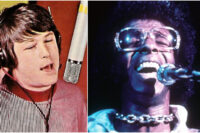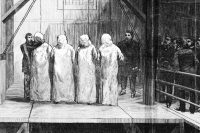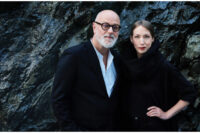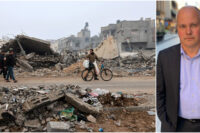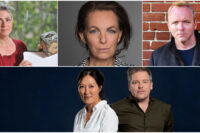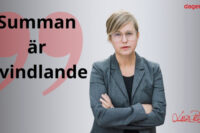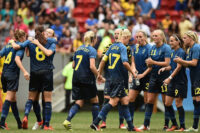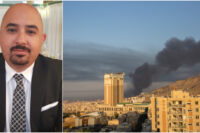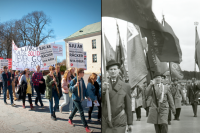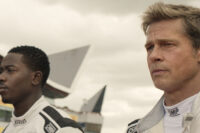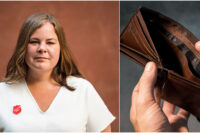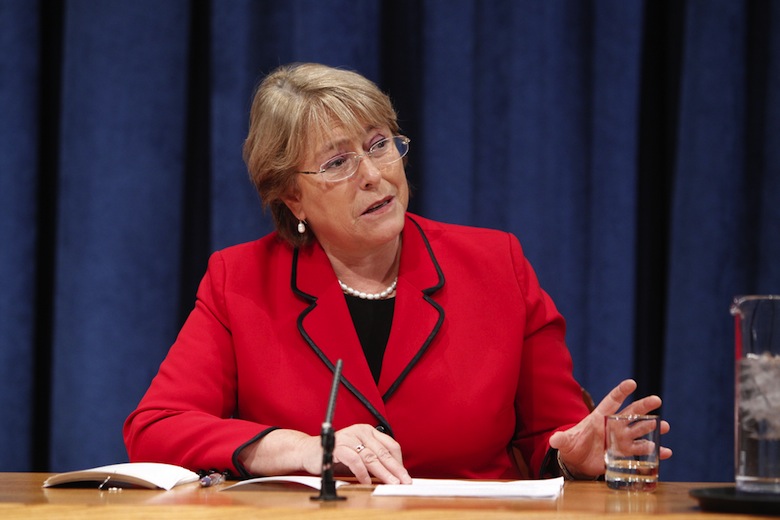
Europeiska unionen står inför utmaningar. Dagens Arena återpublicerar en text om EU:s framtida strategier, skriven av Chiles f.d. president Michelle Bachelet, tidigare publicerad i progressiva magasinet Queries. Chile går till presidentval söndagen 17 november. Texten är på engelska.
I believe that Europe today is a mixture of past achievements and future challenges. However, what remains to be seen is whether the progressive spirit that helped to deliver the former, will now be equal to meet the latter. The achievements reflect the core values expressed in the founding Treaty of Rome; namely to build a new Europe together and to live in peace. There is no doubting the successful impact of either of these inspirational values. With only 7% of the world’s population, the European Union accounts for 25% of global GDP and remains the biggest trading power.
At the same time, a sense of solidarity means that it shoulders nearly 50% of the cost of development aid. The growth process has meanwhile led to some significant milestones in terms of integration, resulting in a conglomeration of 28 nations with diverse cultures but one single purpose: to be European and to draw different nationalities together under a common banner. Although the economic crisis has had a severe impact on the European project, the euro has so far weathered the storm.
It remains a strong currency on international markets and no country using it has so far withdrawn from the eurozone, despite widespread speculation to the contrary.
Peace and democracy
Peace, the single most important part of the European project, has also been secured over the past 50 years – albeit with the notable exception of the Yugoslavian crisis. This is no small feat when you look at the history of Europe, which had been constantly beset by wars and conflicts since the fall of the Roman Empire. In peacetime, the European Union has strengthened democratic practices and built a culture of peaceful coexistence that has transcended individual tensions and differences. That makes the EU not only an accomplishment for European citizens, but also one that is duly recognised for its achievements by the rest of the world, including Latin America.
However, it’s equally true that none of this has been achieved easily and that Europe is facing its share of problems. In the last few years, the structure has faltered in many ways and tensions have run high during institutional and political talks. At one level, this is a question of contemporary economics and sovereign debt. Yet at a more profound level, it’s also about the effects of past events. History is never static in any region of the world: it exerts a powerful influence on modern political thought and frames much of the debate about people’s aspirations for their society. In Europe, the period of history with particular resonance today is the Cold War and its aftermath.
The consequences of neo-liberalism
For five decades, two worlds – two visions of society and politics – were established on European soil.
The fall of the Berlin Wall in 1989 and the end of so-called ‘real’ socialism created in their wake a need to reconcile two essential but opposing concepts from either side of the Iron Curtain: freedom and equality.
The main challenge facing the newly-created European Union was therefore to work toward greater social cohesion and egalitarianism across the whole of Europe. Unfortunately, we now know that reconciling these two concepts is no easy task and has proved, in some cases, to be beyond Europe’s politicians. Wherever market logic and neo-liberalism took root, they brought with them a severe deterioration in both equity and welfare. It was as if Europe had swapped an Iron Curtain for a wall of indifference.
Today, it has left the European Union needing to address a series of issues that threaten to undermine the European project. For a start, its various organisations – especially the European Parliament, the Commission and the Central Bank – require better coordination and a common vision for decision-making. However, these are merely tools for dealing with the challenges that have arisen with the economic crisis.
The real issue is for Europe to develop genuinely common policies. When you look at it from the outside, you see how complicated it is to design and drive such policies—something that has become even more difficult with the successive expansions, which have broadened the range of interests at play. And herein lie the weaknesses.
There is now a sense of urgency sweeping across Europe: the population is ageing, migration is changing societies, and unemployment is having a devastating effect on the younger generations. Yet this is a reality that governments and progressive parties do not always know how to deal with. The new millennium brought a wave of opportunity for Europe to make the most of its strengths. But we have to recognise that it was guilty of short-sightedness with regard to the new dangers posed by globalisation and a global financial system without clear rules and appropriate controls.
Growth: a bigger question
Faced with so many serious challenges, what should be the response of Europe’s progressive parties?
I believe that they have to be clear and unequivocal: their task is to openly confront the growth and development models that sustain inequality. It is not just a matter of determining whether or not economic growth is occurring; it is about governing how growth is generated, where it is headed and what effect it has on women, men and families, and on the environment. In short, it is about introducing policies focused on protecting the welfare of current and future generations.
In Europe the debate is between those who advocate austerity and financial stability on one side, and those who put solidarity at the top of the agenda on the other. Progressives must learn how to be on the side of solidarity while at the same time calmly and responsibly pursuing a return to financial stability. If progressives were able to position themselves correctly and strike the right policy balance – particularly ahead of next year’s European elections – the crisis could be a new opportunity for them.
A mutual interest
As a Chilean, a number of crossovers between my country and Europe are unavoidable. In terms of its cultural and ethnic origins, Chile, in many respects, has strong connections with Europe. We too have achieved important milestones, such as the Association Agreement with the European Union, the most comprehensive, far-reaching and forward-looking bilateral agreement ever signed by Chile.
Why? Because it is based on reciprocity, mutual interest and a strengthening of relations between Chile and the EU in all areas, with three key pillars: political, economic and cooperative.
So when one talks about market access conditions and investment, one also has to stress that the main objective is to promote, disseminate and defend democratic values, especially respect for human rights, freedom of the people and the principles of the rule of law. This is the foundation on which we now want to build a more democratic, equal society.
Michelle Bachelet, är en chilensk socialdemokratisk politiker och den första kvinna som varit landets president.
Följ Dagens Arena på Facebook och Twitter, och prenumerera på vårt nyhetsbrev för att ta del av granskande journalistik, nyheter, opinion och fördjupning.






